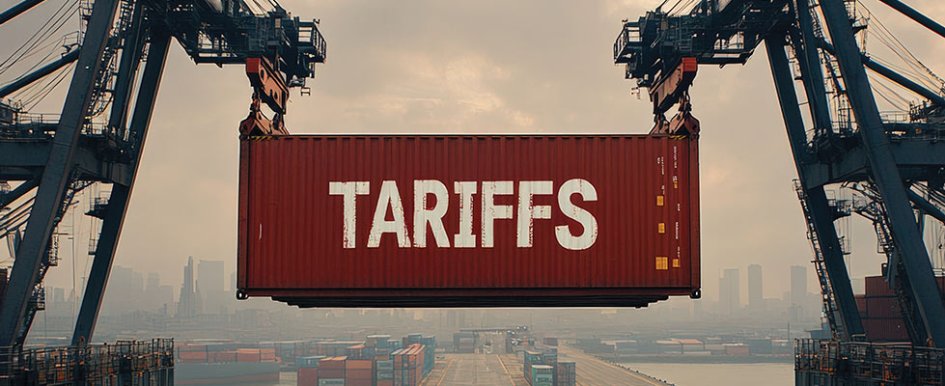
After weathering pandemic-related supply chain delays and rising material costs, contractors are now trying to determine how tariffs may impact their projects and businesses. Construction is inherently material-intensive, making procurement critical to profitability. As contractors explore options for managing tariff-related volatility and getting the right materials at the right time and in line with initial estimates, specialized technology can give them clear competitive advantages.
The implementation of tariffs could cause significant supply chain disruptions, leading to higher prices, strained supplier relationships and increased risks. It could force companies to reassess their procurement strategies — resulting in additional costs, along with the challenge of getting the right materials to various jobsites, impacting project timelines. For example, tariffs on steel could raise procurement costs, pushing businesses to seek new suppliers while simultaneously managing tighter margins.
Overcoming these challenges requires careful planning, adaptability and a proactive approach to minimize the ripple effects across the industry. Investing in construction technology can help empower businesses to navigate these challenges by providing real-time visibility into project costs and enabling smarter decision-making.
This article will look at the potential impacts of tariffs, the challenges they may pose to the construction industry and the technology strategies contractors can implement to minimize the impacts to their businesses.
Smart Cost Management Through Modern
Construction Technology
Higher tariffs could drive up prices, especially in the short term — resulting in lower profit margins while also making overall project costs harder to manage. For contractors, this might mean dealing with budget overruns, project delays and the challenge of finding alternative suppliers that might not meet quality or demand.
Ripple effects could spread across the industry, impacting everything from housing affordability to the feasibility of big infrastructure projects. With rising costs adding pressure, smart cost management will be more important than ever for construction firms to stay on track.
Modern construction software solutions can centralize financial, operational and project data, helping companies identify cost increases linked to tariffs and adjust procurement strategies accordingly. These solutions also enhance project planning and forecasting, with real-time cost tracking and financial insights to help control expenses and plan for long-term stability. Additionally, a digital procurement solution can help avoid the costly mistake of ordering the wrong materials — an issue that’s unfortunately common when contractors rely on double data entry or transferring order information via phone or email.
Smart cost management involves more than just effective material purchasing. Understanding your contracts, especially regarding price escalation during tariff uncertainty, is vital. Weak or missing clauses can create big financial risks. One construction tech company offers an artificial intelligence (AI)-powered tariff risk assessment tool that analyzes construction contracts to quickly identify risks related to tariffs and material costs, particularly concerning price escalation.
Leveraging this technology allows contractors to optimize their purchasing power, make smarter decisions, anticipate risks and build more resilient, cost-effective workflows to manage the challenges posed by tariffs.
Project Visibility Enables Immediate Responses to Real-Time Market Conditions
Utilizing a cloud-based project management platform can also help contractors mitigate the negative impacts of tariffs by providing them with real-time cost tracking, budgeting tools and procurement management features that enable them to better identify cost increases before they get out of control.
With project management software in place, contractors and their extended project teams have a single access point for real-time project data, enabling them to respond to market conditions as they happen, as well as access to the workflows that tie the field and office together. Common features of project management software are listed below:
- Cost tracking and budgeting that allows users to understand the impact of tariff materials on their budgets, allowing for informed decision-making that can prevent overspending.
- Purchase order management that helps contractors manage vendor contracts and track deliveries, streamlining material procurement.
- Change order management features that update material costs as change orders are created.
- Cost forecasting that predicts future costs based on historical data and current trends.
- Integration with enterprise resource planning (ERP) systems that syncs project data to financial data to ensure accurate job cost reporting by phase.
Being able to see project data in one place enables contractors to more efficiently visualize and share project data, helping them adjust to market conditions in real time so that they are making the right decisions for their projects and their overall businesses. This helps contractors stay flexible, reassess their plans and factor in the time and investment needed to successfully navigate industry disruptions.
Remaining vigilant and pivoting as needed to proactively adjust strategies is an essential skill for construction companies to navigate current economic challenges. The industry’s resilience will depend on its ability to adapt to changing conditions, including tariff impacts. By embracing innovative technology solutions, contractors can position themselves to thrive amid disruption and build a stronger foundation for the future.
